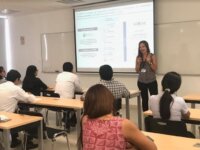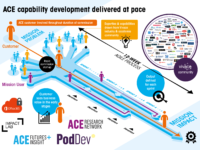In May 2021, the Municipality of Ate, was facing issues with their service to its neighbour's due to the Covid-19 pandemic. Because of this, our strategic partner FEMULP connected us with Ate, area that requested GovLink the implementation of a pilot to perform public opinion poll, in order to gather relevant information para about priority issues for the community, so as to improve the municipal responses facing the Covid-19 and focus the attention on women to generate a solidarity economy.
Innovation Tag: Procurement/Acquisitions
The City of Seattle spends over $720 million every year. With the surge of COVID-19, small businesses were left in a highly vulnerable position, forcing many to shut down. This is especially true for women and minority-owned small businesses (WMBEs). We worked with the City to launch its e-commerce government marketplace, providing a platform for government buyers to seamlessly find local WMBEs, access their products and services, obtain quotes, and check out with a few clicks.
The Environment Agency has a responsibility to protect communities from flood and coastal risks. In the past, the agency has struggled to scale their public engagement and reach their diverse audiences, while also retaining a local relevance. Hello Lamp Post was brought on to provide an interactive, live 24/7 conversational channel to educate and inform the public on flood safety, in high-risk locations around the South West of England and Newcastle.
Since 2020, the City of Austin (COA) and the University of Texas (UT) have collaborated on over twenty diverse research projects under the legal and administrative framework of a five-year, ten million dollar master interlocal agreement (ILA). Among a very few of its kind in the USA, this ILA is an "innovation enabling innovation" that bridges the barriers between two large, extremely complex organizations and fast-tracks the launch of research and innovation projects by four to five times.
A problem for companies and owners of companies is that they need to engage with many different authorities to conduct their business. Instead of building solutions in a siloed approach we aim to build into the ecosystem by integrating different actors and enabling the business to control their own data using blockchains and digital wallets. This is both a new approach and use of a combination of new technologies that benefits the companies.
Government struggles to exploit advances in science and technology that could improve public services. The UK Home Office developed a new, cost-effective model to enable start-ups, Small and Medium-sized Enterprises (SMEs), not-for-profits and academia to solve frontline challenges across UK government using diverse, cutting-edge capabilities and expertise. Uniquely, for UK public sector, it uses flexible, novel ways of working and commercial mechanisms to deliver mission impact at pace.
Procurement organizations have limited resources and decide which procurement solutions to pursue that will bring the greatest benefit to their public sector customers. The Emerging Markets initiative solicits insights directly from the private sector, offering an opportunity to provide ideas that are innovative and forward thinking, to anticipate and proactively meet the needs of multiple governmental entities throughout the country.
The Government of Korea has begun to implement a new Public Procurement of Innovation (PPI) policy, aiming to facilite the diffusion of innovation on the wider market. The Ministry of Science and ICT's new approach takes the existing innovation practice a step further by working in conjunction with associated public R&D projects to identify technological novelty and highlight potential social, economic impacts. This builds confidence for innovative companies and further facilitates public…
The Government Mentor Program (GMP) is an initiative started by the Government of Telangana, India, envisioned to build familiarity with the Government by bringing officials from relevant departments to mentor startups. The organisers believe that startups work on innovative solutions that have the potential to reform existing processes and services that bodies provide. The goal of GMP is to assist entrepreneurs eyeing the Government as a client to establish connections and seek mentorship…
The GovTech Lab is a public sector team focused on encouraging the creation and use of innovative solutions for the government. The GovTech Lab helps the public sector identify challenges that can be solved with emerging technologies, engages startups and SMEs, creating innovative solutions and accelerating startups in #GovTech and #TechForGood space.






